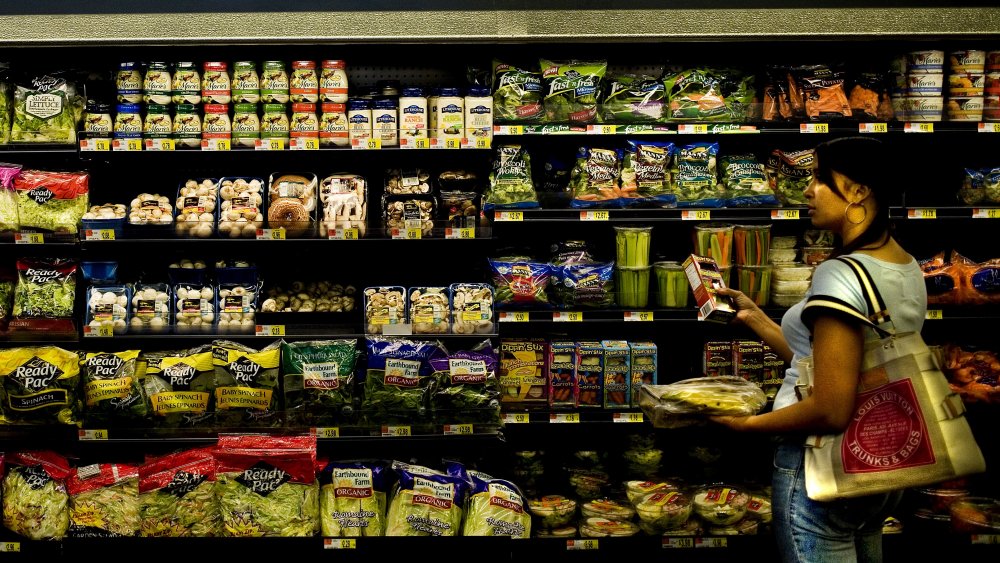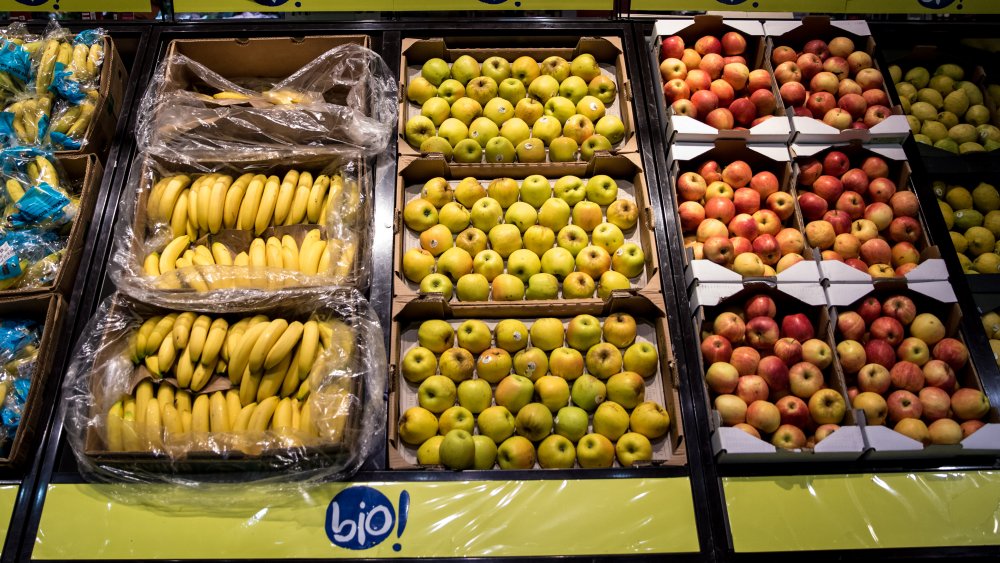Here's Why You Shouldn't Buy Organic Food At Walmart
Organic foods have risen in popularity as the American population has become keenly aware of how the food they eat influences their health and the environment. To wit, when someone opts for organic foods, they're going for vegetables and fruits grown on smaller, more local farms with fewer chemicals than other commercially grown foods; animals not being given antibiotics, and foods free of GMOs (via Help Guide). Pew research suggests that American consumers who seek organic products primarily want to eat healthier or care about the environment and are looking for sustainable, green foods to consume (via Nerd Wallet).
Enter Walmart, whose mission is to "save people money so they can live better" (via Panmore Institute). When the largest grocery giant in the nation introduced organic produce to its store shelves, it made them more conventional and available to its loyal customers. A smart move on Walmart's part since the organic market continues to grow, so much so that organics boasted sales of $47.9 billion in 2018 (via Food Business News). Organic food is clearly a big business. However, because these foods can also come with a bigger price tag than their commercially grown and produced counterparts, it's important to shop around. And while you might think Walmart is the perfect store to offer you the best price, per 12 Tomatoes, Walmart's organic offerings can be pricey. In fact, you should never buy organic foods at Walmart, and here's why.
Organic produce costs more at Walmart
There is actually one big reason you may want to shop for your organics at some of Walmart's competitors: price. While Walmart's goal may have been to make organic foods more mainstream and affordable, per The Simple Dollar, the grocery chain has not been completely successful in meeting the second part of its goal. In fact, when comparing 12 organic staples at Walmart and Whole Foods, The Simple Dollar found that in many cases, Whole Foods was cheaper. And they are not alone in noting unfavorable price differences.
According to Kiplinger, while Walmart's estimated 1,600 organic offerings are cheaper than the national average, both Aldi and Trader Joe's are more likely to have cheaper prices for organic fruits and vegetables, among other items. So the next time you are at Walmart and want to buy something organic, do some price comparison before putting it in your cart. Your pocketbook will thank you.

